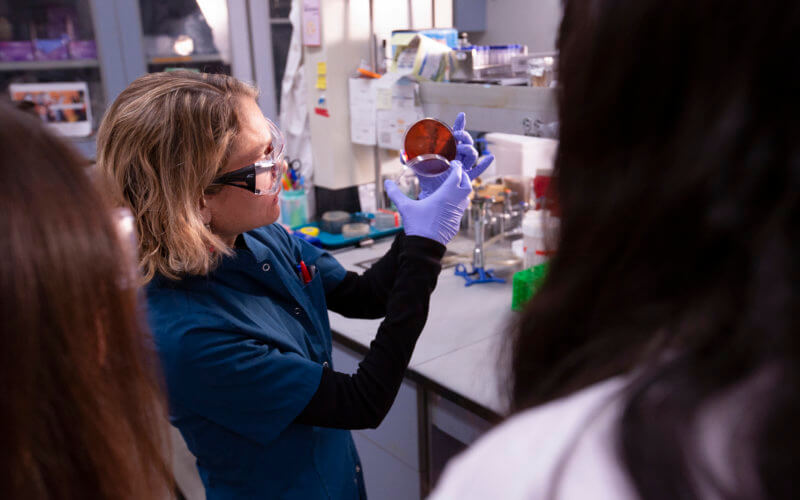
Cal State Fullerton professor of biological science and antibiotic-resistance researcher María Soledad Ramírez and her collaborators have discovered a promising treatment against infections caused by superbugs, or antibiotic-resistant bacteria.
Superbugs are an overlooked and growing global health crisis that the World Health Organization refers to as the “silent pandemic.” The persistent bugs can cause illnesses and harm people with weakened immune systems getting treated in hospitals and other health care settings. Each year, more than 2.8 million antimicrobial-resistant infections take place in the U.S., resulting in 35,000 deaths per year.
In a study published in the peer-reviewed journal Scientific Reports, Ramírez and her team found that Acinetobacter baumannii, a multidrug-resistant bacteria that can cause serious infections in the urinary tract, wounds, blood, and lungs, could potentially be treated with a probiotic strain or lactic acid bacteria. Ramirez’s study proved a probiotic strain stopped A. baumannii from growing and even killed the bacteria.
“These findings could lead to the development of a new alternative to treat these infections, either on its own or alongside other treatments,” says Ramirez. “Our latest work is an exciting step in the right direction. However, we need to explore these findings further to make this a real option for treating antibiotic-resistant infections.”
The Centers for Disease Control Prevention has listed A. baumannii as an urgent public health threat in United States health care facilities. In 2017, antibiotic-resistant bacteria caused an estimated 8,500 infections in hospitalized patients and 700 estimated deaths in the United States.